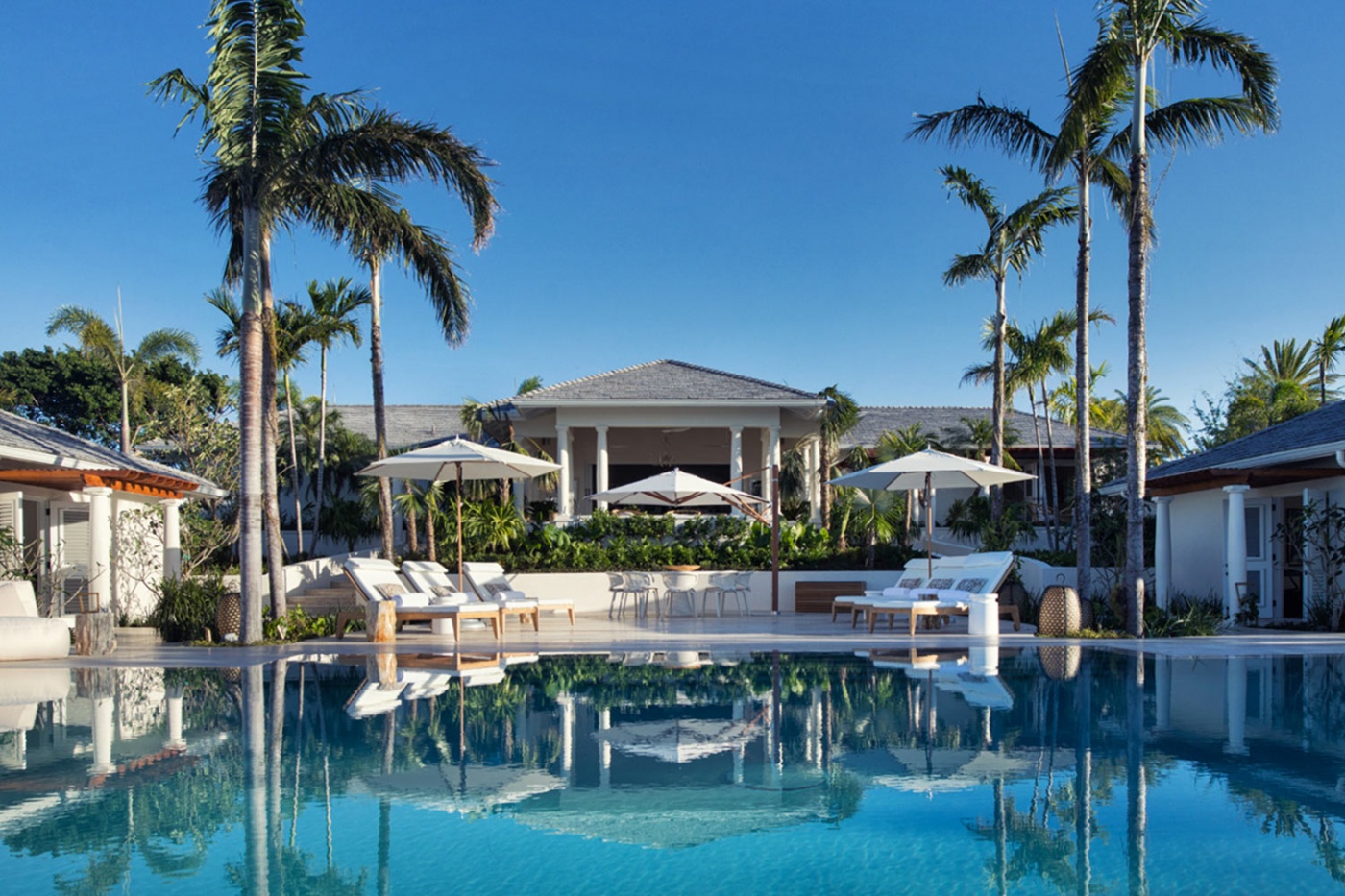Here’s How the Ultra-Rich Are Self-Isolating
In a perfect scenario, we would be sprawling languidly on the sandy beaches of a deserted island, to wait out the pandemic. But for the vast majority of the huddled masses under quarantine, who don’t have deep pockets, getting a tan is the last thing on their minds.
There is, however, a stratum of society that is probably catching the last rays of sunlight (as I’m writing this). These global elites, with enough reserves in their bank to surpass the GDP of a developing nation have opted to self-isolate in fashionable ways. Activities range from making feckless TikTok videos (while decked out in fancy athleisure) in palatial living areas to lounging by their luxurious outdoor pool. To them, sheltering in place means staying at intimate five-star resorts and private islands.
With only 43 exclusive rooms, Hotel Esencia in Riviera Maya has a stellar reputation as the getaway spot among Hollywood A-listers. Right before the U.S. and Mexican government decided to curtail border travel on March 20, the hotel saw an influx of the well-heeled flocking in droves to take shelter. Prices for rooms start at US$1,000 a night, and currently, a 40 per cent discount is offered to guests who extend beyond a week. According to the owner Kevin Wendle, the moneyed, who believe that wealth is the best vaccination against the virus, have extended their stays indefinitely. Apart from Hotel Esencia, Jumby Bay, a luxury resort on a private island just off the coast of Antigua is also a popular coronavirus hideaway for the rich. Beachside suites start at an eye-watering US$1,895 per night.
Since the pandemic started, wealthy residents in New York City have been fleeing to the Hamptons, a seaside playground for millionaires and billionaires, where beachfront mansions are worth at least US$100 million. These urbanites are also holing up at Massachusetts’ most elite enclaves like Nantucket and Martha’s Vineyard. Across the pond, The Cotswolds in England has attracted many celebrities who are paying up to £50,000 a month for a luxury rural bolthole. And the Beckhams even own a private property there.
Australian luxury “home hotel” service Luxico takes pride in hand-picking beautifully appointed holiday villas for long-term homestays. Co-founder and CEO Alexandra Ormerod said that pecunious travellers have been spending up to AUD$200,000 to self-isolate in their remote properties, fully furnished with deluxe amenities such as heated swimming pools, tennis courts, horse riding facilities and private helipads so they can fly in and out anytime. Increasingly, private islands are becoming popular choices, too. If you have a penchant for Greece, Patroklos is currently on the market and the price is only available upon request. With an expansive 250 acres of lush fertile land (and more olive trees than human beings), social distancing has never been easier. Nearby, an Ionian island can be yours for £45 million. Do the ultra-rich really need to hunker down at jaw-dropping locations like a mansion house with moats or a Scottish castle? No. But being privileged shields you from reality—and that’s their only form of “immunity” for the time being.
As millions will be left in poverty due to the coronavirus crisis, perhaps this money could be better spent by helping those struggling to make ends meet. The Clara Lionel Foundation which was founded by Rihanna, has donated US$5 million to Direct Relief, Feeding America and other organisations that help victims of Covid-19. Oprah Winfrey, too, has generously pledged US$10 million to various organisations, including America’s Food Fund. Power couple Blake Lively and Ryan Reynolds have contributed US$1 million to food banks, and even Twitter’s Jack Dorsey has set aside US$1 billion to fight the coronavirus. Although research shows that rich people are more selfish and less empathetic, it’s comforting to know that not all of them are cut from the same cloth.
Image credit: Oetker Collection, Jumby Bay Island


